45 draw a wave and label its parts
Physics Tutorial: What is a Wave? - Physics Classroom In a similar manner, a wave medium is the substance that carries a wave (or disturbance) from one location to another. The wave medium is not the wave and it doesn't make the wave; it merely carries or transports the wave from its source to other locations. In the case of our slinky wave, the medium through that the wave travels is the slinky ... PDF 1. Draw a wave below and label the following parts: peak, trough ... Wave Nature of Light 1. Draw a wave below and label the following parts: peak, trough, wavelength and amplitude 2. Draw two waves with different frequencies and circle the wave that has a higher frequency. 3. What is electromagnetic radiation? At what speed does electromagnetic radiation travel? 4.
Draw and label a diagram of a transverse wave. - Quizlet Part of Science 8 Semester 2 Study Guide Learn with flashcards, games, and more — for free.

Draw a wave and label its parts
Parts of a Wave - Zona Land Education The section of the wave that rises above the undisturbed position is called the crest. That section which lies below the undisturbed position is called the trough. These sections are labeled in the following diagram: Amplitude ( Top, Wave Home ) The term amplitude can have slightly different meanings depending upon the context of the situation. The anatomy of the ocean wave - Surfertoday A wave can be broken down into three main components. They are: Crest. The crest is the top of the wave - the highest point of any wave. Trough. It's the bottom of the wave, the lowest region of a wave, the opposite of the crest. The trough is often constant for waves traveling in the open ocean. When they're about to break, waves have deeper ... PDF 1. Draw a picture of a wave and label wavelength and amplitude. Particle motion is perpendicular to the motion of the wave Wave moves forward and the particles move up and down Longitudinal waves Particles move in the same direction as the wave Longitudinal Waves Practice Measure the wavelength, amplitude, period, frequency and velocity of the following waves: 8s
Draw a wave and label its parts. Label Parts Of A Wave Teaching Resources Results 1 - 24 of 770+ — Label the Parts of the Wave 10. Draw 2-D Models of Waves 11. Observing Waves in Liquids Lab and Recording Sheet 12. Physics Tutorial: The Anatomy of a Wave The Wave Equation A transverse wave is a wave in which the particles of the medium are displaced in a direction perpendicular to the direction of energy transport. A transverse wave can be created in a rope if the rope is stretched out horizontally and the end is vibrated back-and-forth in a vertical direction. LABEL THE PARTS OF THIS TYPE OF WAVE - Brainly.ph LABEL THE PARTS OF THIS TYPE OF WAVE Advertisement Answer 4.6 /5 59 deinnap08 Answer: crest. the top of a wave. wave. moving swell on the surface of water. wave height. the distance between a wave's trough and crest. wavelength. the distance between the crests of two waves. wave trough. the lowest part of a wave. Advertisement Answer 2.2 /5 13 Draw and label the parts of the wave - Brainly.ph Draw and label the parts of the wave . 1. See answer. See what the community says and unlock a badge. close. report flag outlined. report flag outlined. bell outlined. bell outlined.
Label & Draw Transersve Waves: Amplitude, Frequency ... - YouTube Learn how to QUICKLY label a transverse wave with crest, trough, wavelength, frequency, amplitude, resting position and resting points. We will also learn h... Parts And Types of A Wave - The Science Of Waves There are two types of waves; Transverse and Longitudinal or Compression Waves. Longitudinal Waves have different parts, however. The part of a longitudinal wave is called "compression" The part where it is more spread out is called "rarefaction" These waves have the same way to measure wavelength, but instead of trough to trough, PPTX STUDY GUIDE Wave Properties, Interactions, and Sound Waves 5. Draw and label a diagram of a Compression wave. Be sure to include the following parts: Wavelength . Compression. Rarefaction. 6. Describe the characteristics of a longitudinal wave. Looks like a spring. Energy moves in the same direction as the wave. Describe the characteristics of a transverse wave. S shaped waves. Draw a standard ECG and explain the different segments in it. Answer Electrocardiogram is a graphical representation of the cardiac cycle produced by an electrograph. The diagrammatic representation of a standard ECG is shown below. A typical human electrocardiogram has five waves - P, Q, R, S, and T. The P, R, and T-waves are above the base line and are known as positive waves.
PDF Drawing the Electromagnetic Spectrum DRAWING THE ELECTROMAGNETIC SPECTRUM DRAWING THE ELECTROMAGNETIC SPECTRUM 1. Carefully fold your paper in half hamburger style. 2. Fold it in the same direction again. 3. And again. 4. And again. 5. When you open it up, you should have 8 sections with the lines all going one direction. 6. Orientate your paper Landscape style. 7. DOC Worksheet - Labeling Waves - Pc\|Mac WORKSHEET - LABELING WAVES Study Guide WAVES 1. The highest point on a wave is the __ CREST __, while the lowest point is the __TROUGH___. 2. The _AMPLITUDE___ of a wave is a measure of the amount of energy it carries. 3. The distance from one point on a wave to the identical point on the next wave (crest to crest, etc. __WAVELENGTH_. 4. EKG or ECG Waveform Parts Easily Explained and Labeled - EZmed Before we get started, let's briefly label the main components of an EKG waveform that will be discussed in this post. The P wave, QRS complex, and T wave are the parts of an EKG in which there are changes in voltage (waves). The region between 2 waves is called a segment. The region between the P wave and QRS complex is known as the PR segment. Solved 1. Draw a transverse wave and label the following | Chegg.com 1. Draw a transverse wave and label the following parts: amplitude, wavelength, crest, trough 2. Draw and label a longitudinal wave. Include compression, rarefaction and wavelength 3. Give examples of the waves drawn in #1 and #2. 4. In a sound wave, what are compressions? What are rarefactions? 5. What is a bow wave? How is it created? 6.
Waves and Wave Properties - Lesson - TeachEngineering Students learn about the types of waves and how they change direction, as well as basic wave properties such as wavelength, frequency, amplitude and speed. During the presentation of lecture information on wave characteristics and properties, students take notes using a handout. Then they label wave parts on a worksheet diagram and draw their own waves with specified properties (crest, trough ...
Draw electromagnetic wave and label its parts. Diagram electromagnetic wave and label its parts.
Solved Chap 15- The Dynamic Ocean 8. Draw a wave and label | Chegg.com Science. Earth Sciences. Earth Sciences questions and answers. Chap 15- The Dynamic Ocean 8. Draw a wave and label its parts 9. Contrast erosional and depositional coasts. Give examples of each. 10. Discuss efforts people use to slow coastal erosion such as the building of jetties and seawalls 11.
label the parts of a wave the terms - Brainly.com Label the parts of a wave the terms : crest ,trough, frequency, wavelength, amplitude Generally Crest This is the defined as the vertical distance covered by a wave. Trough This speaks of lowest point of a wave the inverse of the crest Frequency This is the is defined as the inverse of Wavelength
Middle School Science Help | Krystal Cortez | PARTS OF WAVES PARTS OF THE WAVE Introduction We are exposed to different types of waves everyday. Radio waves, microwaves, and UV waves are just a few of the unseen ones. But of course when we experience visible light, we are perceiving color in the form of a wave's wavelength and frequency. When we experience audible sound, it's the wave's wavelength and ...
Label the heart - Science Learning Hub Selecting or hovering over a box will highlight each area in the diagram. In this interactive, you can label parts of the human heart. Drag and drop the text labels onto the boxes next to the heart diagram. If you want to redo an answer, click on the box and the answer will go back to the top so you can move it to another box.
How do you draw a longitudinal wave and label the parts? - Answers Draw a wave and label four parts. What are the parts to a longitudinal wave? Long Wave. What are the parts of a transverse and a longitudinal wave? Sound and Light.
Parts and Sizes of Waves - National Geographic Society Draw a line to the lowest part of the wave and write the label trough. Tell students that the trough is the lowest point between each crest. Have students draw a similar wave on a piece of construction paper and add the labels. 2. Introduce the concept of wave height.
Wave - Types of Waves, Properties of Waves & Application of Waves | BYJU'S A longitudinal wave has the movement of the particles in the medium in the same dimension as the direction of movement of the wave. Examples of longitudinal waves: Sound waves; P-type earthquake waves; Compression wave; Parts of longitudinal waves: Compression: where the particles are close together. Rarefaction: where the particles are spread ...
Draw and Label the Parts of a Wave - ppt video online download Sonar signal sent to ocean floor and time how long it takes to reach bottom and return to surface Side scan sonar – technique that directs sonar waves at an ...
Parts of Longitudinal and Transverse Waves Parts of waves. Parts of a Transverse wave: The crest is the top of the wave. The trough is at the bottom of the wave. The wavelength is the length of the wave. The amplitude of a wave is the highest amount of vibration that the medium gives from the rest position. The rest position is the position where a wave would be if there was no movement.
3.1.4 Draw and label a diagram showing the structure of water ... - YouTube Water (H2O) should be drawn as two hydrogen atoms connected to one oxygen atom by a bond known as a polar covalent bond. There are two lone pairs of electron...
(Get Answer) - 1. Draw a deep-water ocean wave and label its parts ... Draw a deep-water ocean wave and label its parts. Show the orbits of water particles. Include a defi nition of wave period. How would you measure wave frequency? 2. What factors influence the growth of a wind wave? What is a fully developed sea? Where would we regularly expect to fi nd the largest waves?
Physics Chapter 14 Review Flashcards - Quizlet Draw a transverse wave and label all of its parts (crest, trough, wavelength, amplitude). Draw a standing wave and label its parts. constructive- the interference of two or more waves of equal frequency and phase, resulting in their mutual reinforcement and producing a single amplitude equal to the sum of the amplitudes of the individual waves.
Chapter 10 - Waves Flashcards | Quizlet Draw an ocean wave and label its parts? Include a definition of frequency and period. Frequency is the number of waves crest passing point A each second Period is the time required for the wave crest at point A to reach point B. How far down is a wave felt? Half way down. What are three factors that are used to classify waves?
PDF 1. Draw a picture of a wave and label wavelength and amplitude. Particle motion is perpendicular to the motion of the wave Wave moves forward and the particles move up and down Longitudinal waves Particles move in the same direction as the wave Longitudinal Waves Practice Measure the wavelength, amplitude, period, frequency and velocity of the following waves: 8s
The anatomy of the ocean wave - Surfertoday A wave can be broken down into three main components. They are: Crest. The crest is the top of the wave - the highest point of any wave. Trough. It's the bottom of the wave, the lowest region of a wave, the opposite of the crest. The trough is often constant for waves traveling in the open ocean. When they're about to break, waves have deeper ...
Parts of a Wave - Zona Land Education The section of the wave that rises above the undisturbed position is called the crest. That section which lies below the undisturbed position is called the trough. These sections are labeled in the following diagram: Amplitude ( Top, Wave Home ) The term amplitude can have slightly different meanings depending upon the context of the situation.
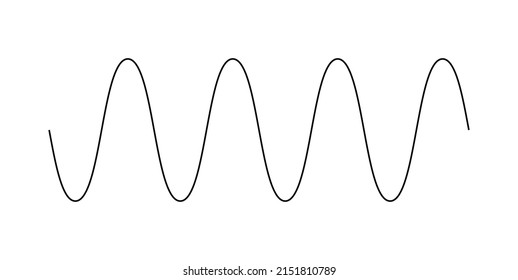
















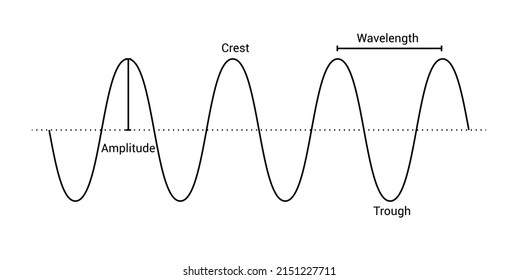
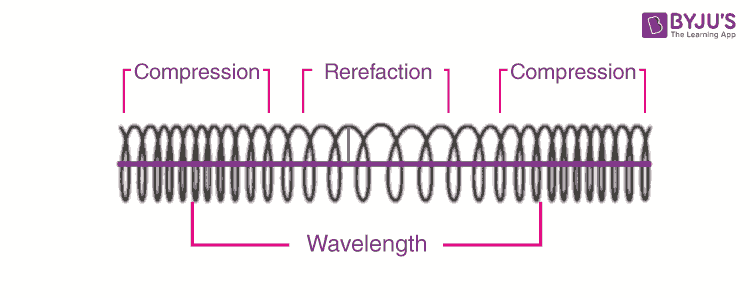
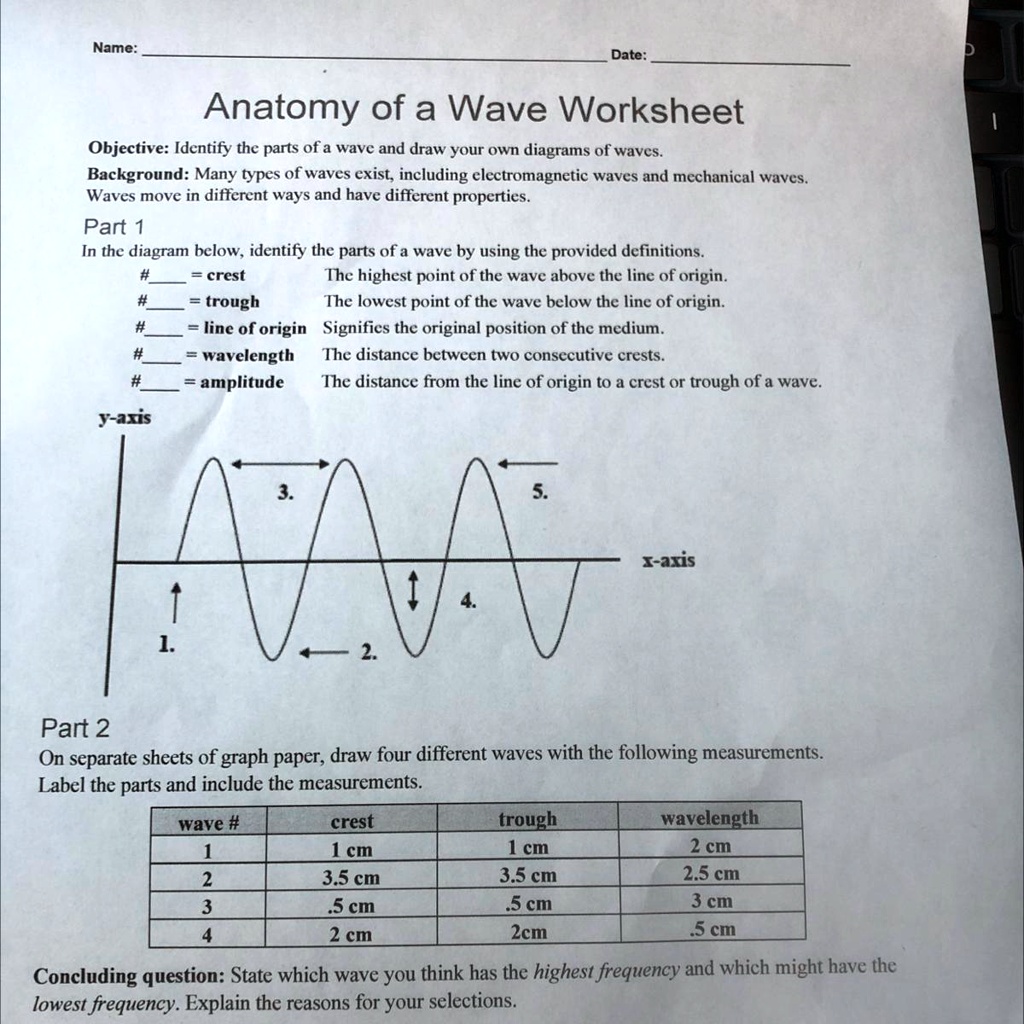


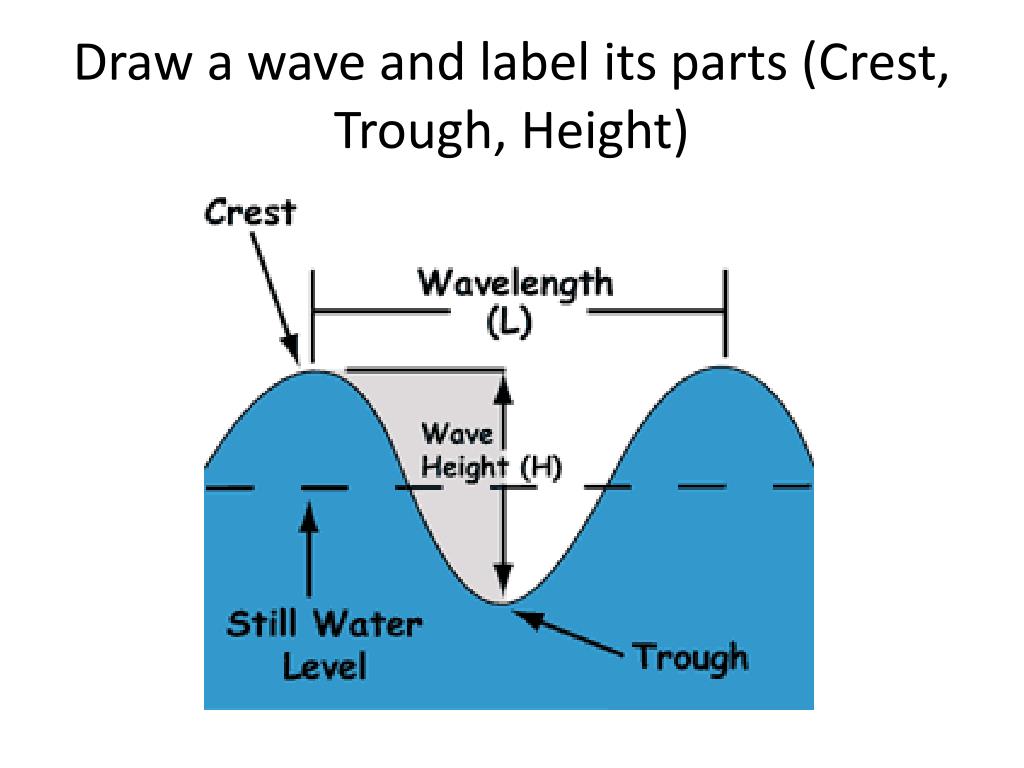


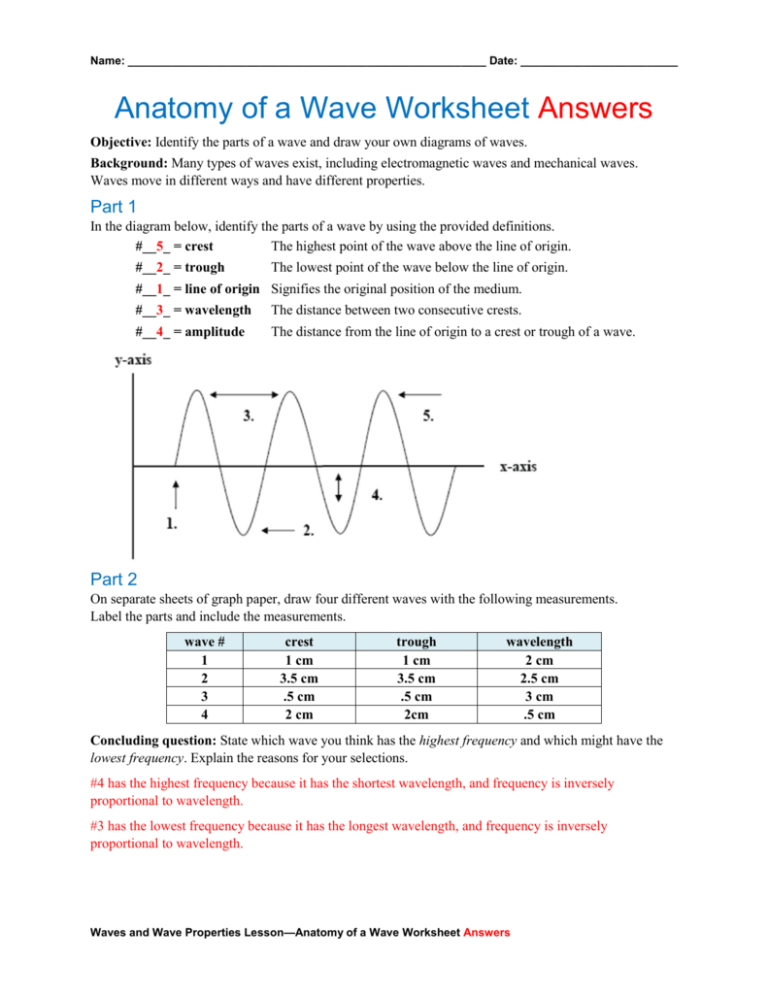
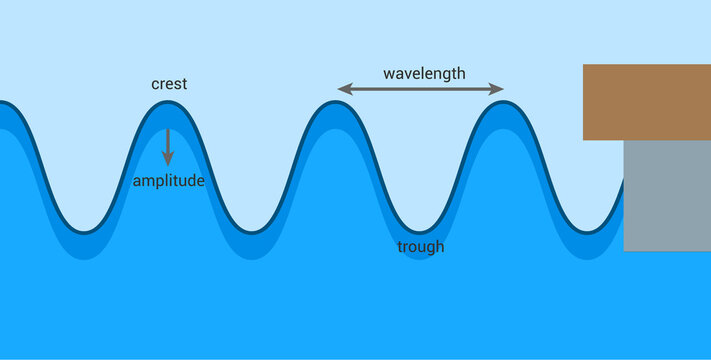

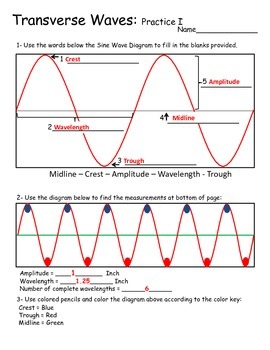
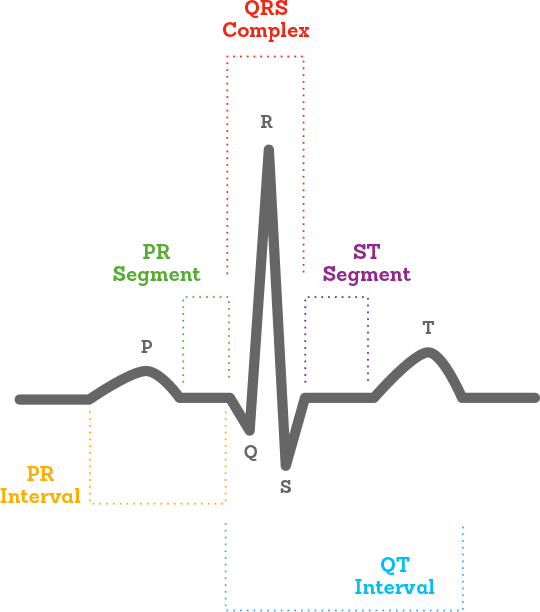
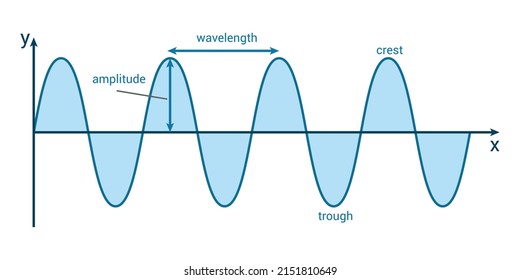



Post a Comment for "45 draw a wave and label its parts"